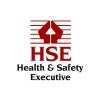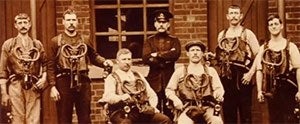MRS Training & Rescue provide specialist safety training for mining and tunnelling professionals both onsite and at training centres conveniently located across the UK. Our courses address the various safety considerations specific to mining and tunnel environments, ensuring thorough preparation for a broad range of industry challenges.
With over 120 years of experience protecting mining professionals, MRS Training & Rescue, is uniquely attuned to industry safety requirements and regulations.
Which mining or tunnelling training course should I choose?
We offer a range of bespoke mining courses that meet National Occupational Standards, and we are a Mineral Products Approved Centre (MP Awards) for mining and shot firing training courses.
Our facilities include a shot firing simulator, allowing delegates to actively participate in the shot firing process as experienced in a mine. Simulated scenarios include the charging of shot holes to specification, undertaking pre and post firing checks, and misfire management.
Built-for-purpose underground galleries also enable us to carry out highly realistic mines rescue training.
We offer the following courses:
- Mines Rescue Operative training and assessment
- Golden Hour (Managing the initial part of a major mine incident)
- Shotfiring in Mines
- Safe in the Underground Environment (MG1 and MG2)
- Bespoke Mining training and assessment (Winders, Banksmen, Miners)
- Mining Legislation
- Advanced First Aid (Mining specific)
Practical Training Facilities
We have simulated training facilities at our centres throughout the UK and a mobile training unit we are able to tow to sites such as construction sites, offices and factories.
Our training centres across the UK are equipped with specially designed tunnels. These tunnels recreate the environments delegates encounter in their daily work, enabling realistic training scenarios, including emergency simulations for confined space escape and rescue practice.
Mining Qualifications and Equipment
MRS Training & Rescue offers courses compliant with British Standard requirements and is recognised as a Mineral Products Qualification Council Approved Centre (MPQC) for our Shot Firing in Mining Operations training course.
Our unrivalled experience delivering confined space training and rescue makes us experts in equipment selection and utilisation. We only use equipment that is proven to be fit for purpose through extensive testing and on-the-job use.
If you would like to discuss the equipment requirements of your company, don’t hesitate to CONTACT US. You can also view the FULL LIST OF EQUIPMENT we use.
Tunnelling Risks
Tunnelling operations pose significant safety risks for workers. There is the potential for:
- Falls of ground (roof, sides and open face of the excavation)
- Potential for drowning due to increase in liquid levels (heavy rainfall, rising water levels in sumps)
- Fire or explosion (presence and ignition of flammable gas such as methane, vehicle fuels, cutting / welding operations, oxygen or gas cylinders, materials brought into tunnels)
- Inrush of water or free flowing solids (inrush, inundation, heavy rainfall)
- Loss of consciousness due to increase in body temperatures (burning / welding, running machinery, use of resins that may produce heat when setting, hand excavations in hot/humid conditions)
- Falls from height (mobile elevated working platforms, tower scaffolds, access ladders)
- Loss of consciousness or asphyxiation from gas, fume, vapour or lack of oxygen (disturbing sludge or other deposits; fumes from vehicles / generators; chalk and limestone coming into contact with acidic water can produce Carbon Dioxide gas which is suffocating; Thanet sands coming into contact with air and water can produce excess nitrogen gas creating oxygen deficient atmosphere; blasting / shotfiring fumes producing toxic gases; lowering water table may cause de-oxygenation of an area; strata freezing may introduce excess nitrogen gas risk)
- Dusts (drilling, blasting, cutting rock, crushing rocks, using cements
- Types of strata likely to give off gases
- Contact with chemicals and hazardous substances (adhesives, solvents, oils, grease, fuel, cements, resins, spray painting)
- Contact with moving vehicles / machinery
- Electric shock
- Biological hazards
- Contact with contaminated soil
(This is not a complete list of hazardous situations that may arise).
Why Use MRS?
MRS Training & Rescue are leading providers of confined spaces training and high-risk rescue services for a wide variety of industries in the UK. However, with a mining legacy spanning 120 years, we have particular specialism in this field.
We trace our roots back to the turn of the 20th century when we were established to respond to emergencies in the UK mining industry. Today, rebranded as MRS Training and Rescue, we have retained all the governance and expertise required to operate a national mines rescue scheme, which up until 2015, was approved by the Secretary of State.
More than just educators
Most of our instructors are real-life emergency rescuers with extensive experience operating in a wide range of dangerous environments and situations - adding rare personal insight to our courses.
Advanced training facilities
Our training centres, some of which have been active for 100 years, provide the perfect environment for immersive, practical learning. We also happily travel to provide training and rescue services onsite with a state-of-the-art fleet of mobile training units at our disposal.
Recognised specialists
We are the largest private sector rescue company in the UK and are recognised within the Mines Regulations 2014 as a specialist rescue services provider. Our commitment to safety has stood the test of time, and no other rescue company in the public or private sector can compete with our knowledge and experience.
Bespoke training
We realise not one single solution is right for every organisation, and that’s why we offer bespoke and tailored training and rescue solutions. If you’re unsure of the training required or the risks you or your employees face, don’t hesitate to contact us.






